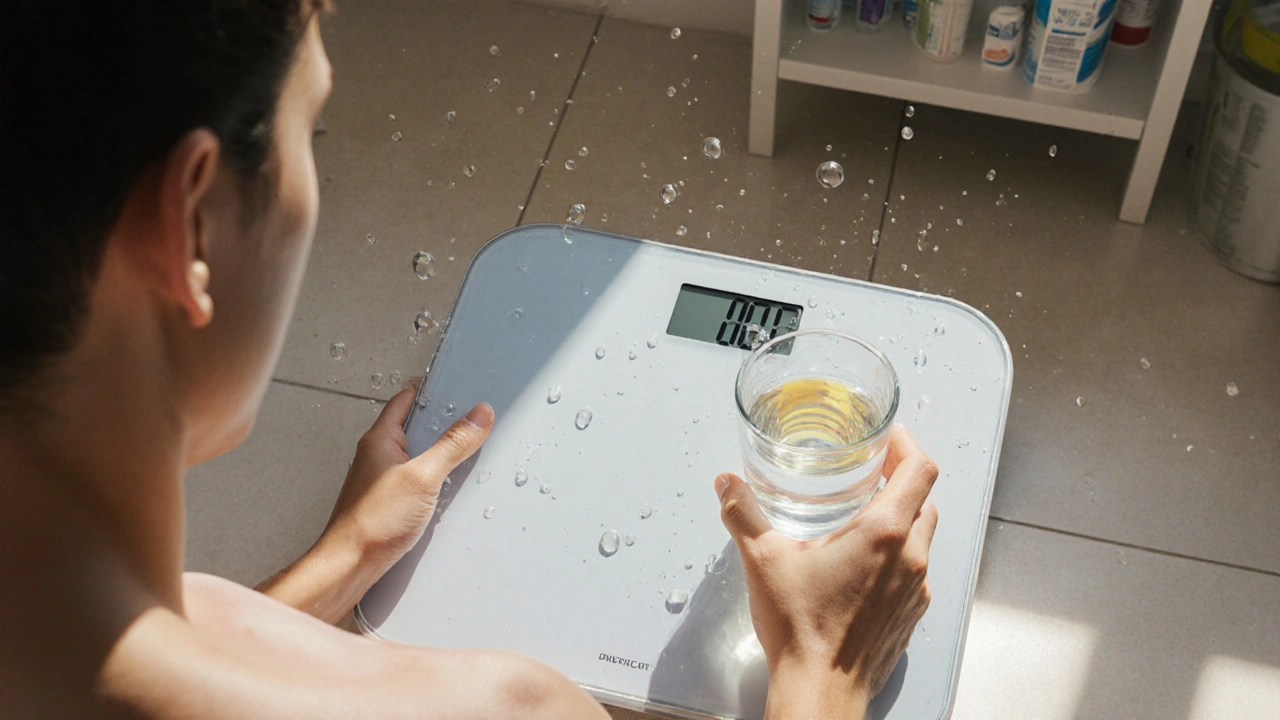Dehydration: Causes, Risks, and How Medications Can Make It Worse
When your body loses more fluid than it takes in, you're experiencing dehydration, a condition where your body doesn't have enough water to carry out normal functions. Also known as fluid deficit, it’s not just about dry lips or a headache—it can throw off your heart rhythm, confuse your brain, and even trigger dangerous drug reactions. Many people think dehydration only happens in hot weather or after intense workouts, but it’s often quietly caused by everyday medications.
Diuretics, drugs designed to flush out excess fluid to lower blood pressure or reduce swelling. Also known as water pills, they’re commonly prescribed for high blood pressure and heart conditions, but they directly increase urine output. That’s why drugs like indapamide, a thiazide-like diuretic used for edema and hypertension can leave you dehydrated if you don’t drink enough. Even caffeine, a mild diuretic found in coffee, tea, and energy drinks, can add up over time, especially if you’re taking other meds that pull water from your system.
Some antidepressants, like SSRIs and tricyclics, interfere with your body’s ability to regulate fluids. They can reduce your sense of thirst or affect how your kidneys hold onto water. And if you’re on something like ramipril, an ACE inhibitor used for blood pressure and heart protection, you might notice your skin feels tighter or you’re dizzy when standing—signs your body is low on fluids. Dehydration doesn’t just make you feel awful; it can make your meds less effective or even dangerous. For example, low fluid levels can spike potassium or sodium levels, which can trigger irregular heartbeats like Torsades de Pointes, a life-threatening arrhythmia linked to QT-prolonging drugs.
It’s not just about drinking more water. It’s about understanding what’s pulling that water out of you. The posts below break down exactly how common prescriptions—from diabetes drugs to pain relievers—can silently drain your fluids. You’ll find practical tips on spotting early signs, adjusting your habits, and talking to your doctor about safer alternatives. Whether you’re managing high blood pressure, depression, or chronic pain, knowing how your meds interact with your body’s water balance could be the difference between feeling okay and ending up in the ER.

Gastroenteritis and Weight Loss: What to Expect & How to Recover
- Oct, 5 2025
- 20
Learn why gastroenteritis leads to weight loss, how much to expect, safe rehydration tips, and when to see a doctor.
Categories
- Health and Medicine (62)
- Health and Wellness (57)
- Medicine (37)
- Women's Health (11)
- Mental Health (9)
- Men's Health (7)
- Beauty and Wellness (4)
- Health Information (4)
Archives
- February 2026 (8)
- January 2026 (25)
- December 2025 (28)
- November 2025 (25)
- October 2025 (27)
- September 2025 (14)
- August 2025 (3)
- July 2025 (2)
- June 2025 (2)
- May 2025 (3)
- April 2025 (4)
- March 2025 (4)
- online pharmacy
- medication safety
- dietary supplement
- health benefits
- dietary supplements
- generic drugs
- prevention
- fertility
- online pharmacy Australia
- side effects
- QT prolongation
- medication side effects
- diabetes medications
- GLP-1 agonists
- nocebo effect
- brand vs generic
- treatment
- treatment options
- benefits
- connection
